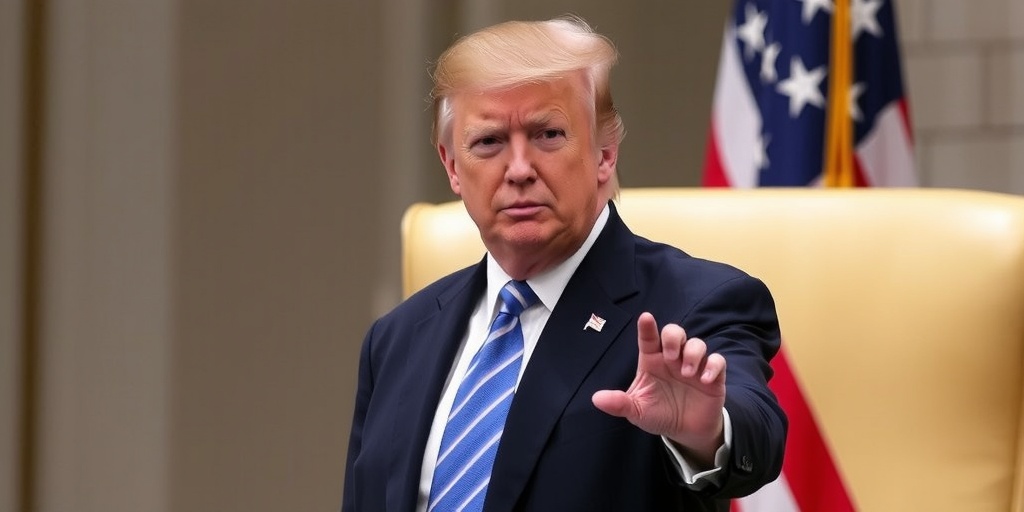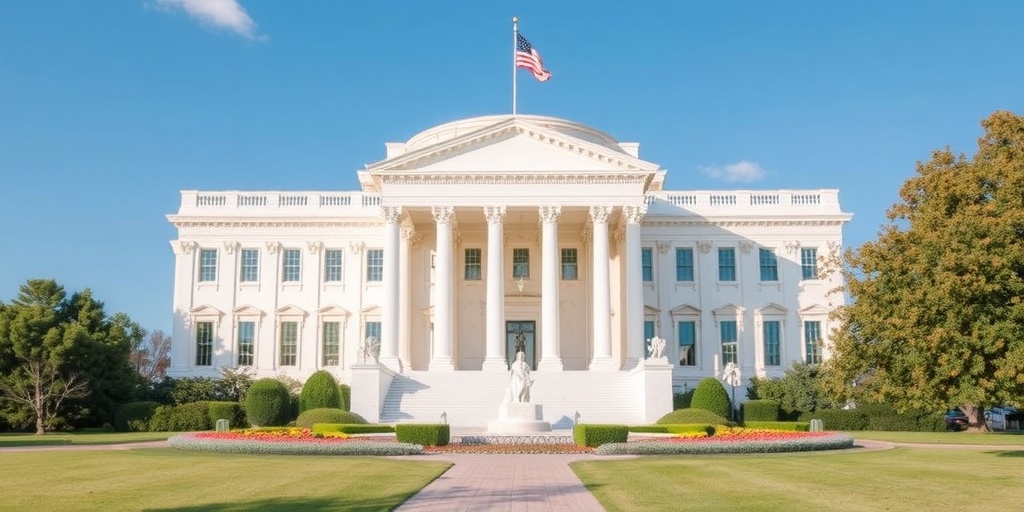Now Reading: Trump Administration Must Repatriate Deported Migrant to El Salvador
-
01
Trump Administration Must Repatriate Deported Migrant to El Salvador
Trump Administration Must Repatriate Deported Migrant to El Salvador

A recent ruling by a federal judge has brought significant attention to the deportation policies of the Trump administration, especially regarding the case of Kilmar Armando Abrego Garcia, a Maryland man who was erroneously deported to El Salvador despite a court order permitting him to remain in the United States. The judge, Paula Xinis, delivered a decisive ruling during a Federal District Court hearing in Maryland, demanding that the administration rectify this grave error by returning Mr. Abrego Garcia by the end of the day on Monday.
Mr. Abrego Garcia, a Salvadoran national, was arrested and placed on a plane to El Salvador on March 15, an action the judge criticized as lacking any legal foundation. Judge Xinis emphasized that the administration’s decision to deport him was made without due process, effectively disregarding the legal rights afforded to him under the court’s previous ruling. The unexpected departure from established legal protocol raised eyebrows and highlighted ongoing tensions between immigration enforcement and the judicial system.
During the court proceedings, the Trump administration’s representatives argued that they had limited options for bringing Mr. Abrego Garcia back from El Salvador, even while acknowledging the deportation had been a mistake. This admission, alongside the Judge’s compelling assertions, raised questions about the administration’s adherence to legal procedures in immigration enforcement, particularly regarding individuals who have been granted temporary protections or are awaiting legal proceedings.
The case has implications that stretch far beyond just one individual. It highlights broader practices within the Trump administration regarding immigration enforcement, especially the aggressive strategies employed to increase deportations across the country. These tactics have included both traditional legal pathways and more unconventional methods that critics argue undermine due process.
Mr. Abrego Garcia’s situation is further complicated by allegations from the Justice Department that he is associated with MS-13, a violent transnational gang originating from El Salvador. However, during the hearing, Judge Xinis expressed skepticism about these claims, noting that there was insufficient evidence to substantiate the government’s accusations. She emphasized that accusations of gang membership should come through established legal processes, such as indictments or criminal complaints, allowing for an opportunity to contest the allegations in a robust and fair manner.
In her remarks, Judge Xinis underscored the importance of due process, reiterating that a simple assertion by the government does not meet the legal standard when it comes to serious accusations that could have severe repercussions on an individual’s life. “In a court of law, when someone is accused of membership in such a violent and predatory organization, it comes in the form of an indictment, complaint, criminal proceeding — a robust process, so we can address the facts,” she stated. This insistence on legal protocol underscores the tension between swift immigration enforcement and the foundational legal rights afforded to everyone in the United States.
The case has sparked a broader conversation around the treatment of immigrants in the United States, particularly regarding how those accused of gang affiliation are handled under the law. Critics of the administration’s practices have raised alarms over what they perceive as a lack of transparency and accountability in the immigration enforcement process, where swift actions often overshadow the legal rights of individuals.
As the situation continues to unfold, the White House has remained silent on the judge’s ruling, with no immediate response from President Trump or his administration. Historically, the Trump administration has reacted strongly against federal judges who have called into question its deportation policies, reflecting a broader climate of conflict between the executive branch and the judiciary over immigration issues.
The case of Kilmar Armando Abrego Garcia reflects the complexities and challenges involved in immigration enforcement, especially amid a landscape characterized by political tension, legal uncertainties, and significant human implications. It remains to be seen how the administration will respond to the court’s order and what this will mean for Mr. Abrego Garcia and others like him caught in the crosshairs of a contentious immigration policy landscape. The distinction between legal enforcement and due process continues to be tested, making this case a crucial flashpoint in the ongoing debate over immigration in America.
Stay Informed With the Latest & Most Important News
Previous Post
Next Post
-
 01New technology breakthrough has everyone talking right now
01New technology breakthrough has everyone talking right now -
 02Unbelievable life hack everyone needs to try today
02Unbelievable life hack everyone needs to try today -
 03Fascinating discovery found buried deep beneath the ocean
03Fascinating discovery found buried deep beneath the ocean -
 04Man invents genius device that solves everyday problems
04Man invents genius device that solves everyday problems -
 05Shocking discovery that changes what we know forever
05Shocking discovery that changes what we know forever -
 06Internet goes wild over celebrity’s unexpected fashion choice
06Internet goes wild over celebrity’s unexpected fashion choice -
 07Rare animal sighting stuns scientists and wildlife lovers
07Rare animal sighting stuns scientists and wildlife lovers





















